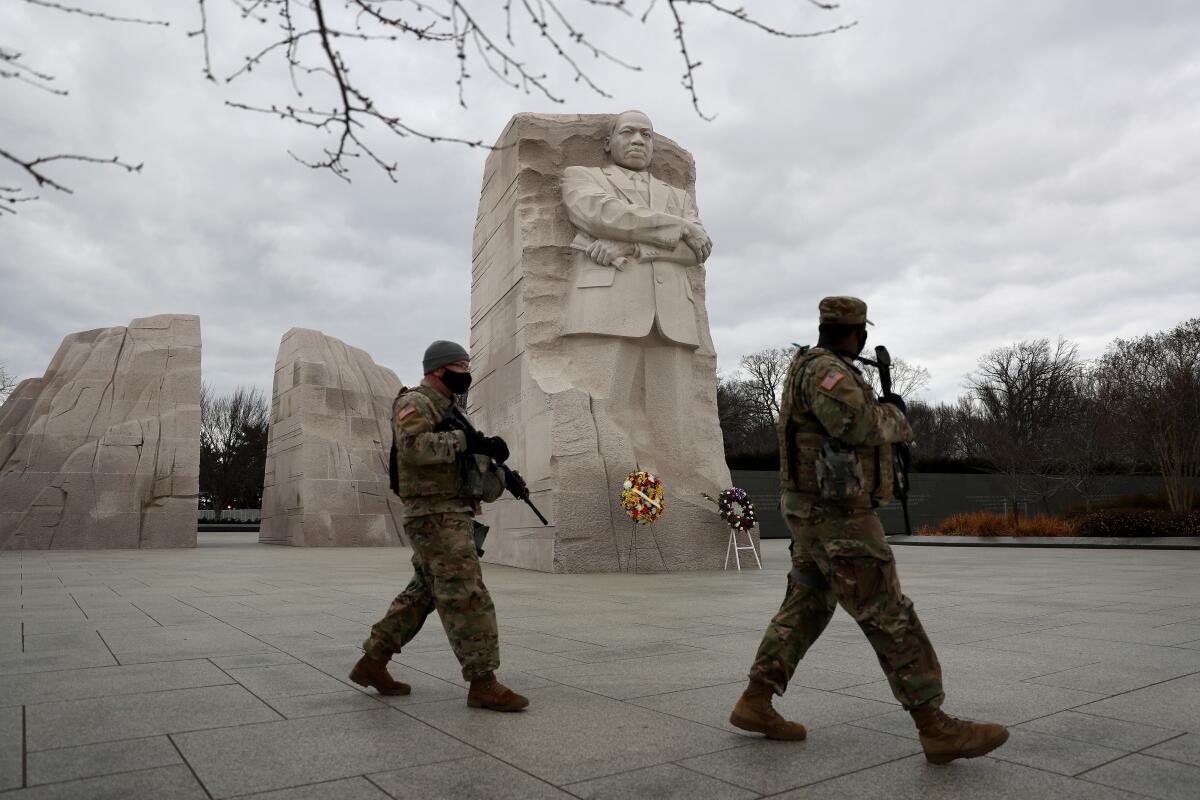Letters to the Editor: We owe our democracy’s survival to MLK and Black voters

To the editor: To whom do we owe thanks for the preservation of our democracy? (“Martin Luther King’s Promised Land may be closer than we think,” editorial, Jan. 18)
To the white evangelicals preaching their morality to the masses while they support the most immoral president in our history? To the billionaires who continue to refuse to pay a living wage and provide healthcare to the workers who show up for work in order to stave off hunger and foreclosure?
To politicians who fan the flames of insurrection? To the domestic terrorists with their wild-eyed blind beliefs in conspiracy theories?
No, we owe our thanks to decent human beings in our society who have never turned their backs on our democracy when they had every right to do so. I’m talking about the Black women and men who in a resounding majority voted for Joe Biden and Kamala Harris.
Thanks to their courage and the courage of their community leaders, we now have the opportunity to try and live up to Martin Luther King Jr.’s dream. His sacrifice and courage should be the beacon for our democracy.
Giacomo Bucci, Encinitas
..
To the editor: Martin Luther King Jr. is nationally revered for his work on civil rights. What’s often passed over is his socialism.
In 1952 he wrote to Coretta Scott, his future wife, “I am much more socialistic in my economic theory than capitalistic,” and concluded that “capitalism has outlived its usefulness.” But King did not advertise his socialism, fearing it would interfere with his fight for equal rights. He was assassinated in April 1968 while in Memphis to support a sanitation workers’ strike.
It’s typically overlooked that his Christian religion was socialist — not only because of Jesus’ love of the poor and indignation against the wealthy, but also because the first Christian community, in Jerusalem, was socialist, as explained in the book of Acts: “All the believers were one in heart and mind. No one claimed that any of their possessions was their own, but they shared everything they had.”
In short, King was a genuine Christian.
Roger Carasso, Santa Fe, N.M.
More to Read
A cure for the common opinion
Get thought-provoking perspectives with our weekly newsletter.
You may occasionally receive promotional content from the Los Angeles Times.










